
Do you have what you need to make your garden grow?


Garden Center
Store Hours
Mon-Sat:
6:00am - 9:00pm
Sun:
8:00am - 8:00pm
Curbside:
09:00am - 6:00pm
Location
Popular at Your Garden Center
Trending Garden Supplies in May
Trending Live Plants
Garden Project Calculators
;Resize=(703,395.44))
Grass Seed Calculator
When you're ready to seed your lawn, our calculator helps you estimate the amount of grass seed you'll need to get the job done.
;Resize=(703,395.44))
Mulch Calculator
Enter your preferred material, the square footage and mulch depth of the coverage space for accurate results.
;Resize=(703,395.44))
Fencing Calculator
We'll calculate the amount of fencing you should purchase based on your property needs.
Shop Outdoor and Garden Brands
Frequently Asked Questions About Gardening
What planting zone am I in?
Check the USDA planting zone map, as planting zones have changed slightly over the years. Planting zones with higher numbers can plant earlier in the year. Increase your odds of successful gardening by choosing plants that are meant for your zone.
Can I plant seeds directly in the ground?
If the soil isn't cold and frozen, consider planting your veggie, flower, or fruit seeds directly into your garden. This is called the "direct sow" method. Plant after the threat of frost is gone for the season, as seedlings and sprouts can't weather those conditions. You can also start your seeds indoors if you'd like. Consult your seed packet for how and when to sow seeds.
How do I plant seeds?
Follow the directions on your seed package. It'll tell you when to start them indoors and when to plant them outside. Generally, you'll add three to five seeds per planting hole, then push them down with your finger. Mark where you planted them with a flag, wooden craft stick, or twig so you don't mistake them for weeds later.
Should I harden off my seedlings before planting them outside?
Yes, if you raised plants indoors from seeds in your own plant nursery, harden them first before you transplant them. Hardening allows your seedlings to adjust to the great outdoors, making them more resilient against cold snaps. It slows their growth until they're strong and ready to take off during a spring warm front.
What do I do before planting transplants or seeds outside?
Before you plant, make sure that it's warm enough outside, your plant will have the right amount of sun, and the soil is healthy. Check your seed packet to see if it likes partial sun, shade, or full sun, as well as what time of year it should be planted. Space your plants as described on the seed packet for best results so your plant babies have room to grow big and strong.
Should I use peat moss starters or coir starters?
Seed starters, full of nutrients in convenient pellets or pots, work for new and experienced gardeners alike. You don't have to use these starters if you're planting in soil, but you may want to. Starting seeds in peat pots works best for delicately rooted plants like cucumbers and eggplant, as well as flowers that require an acidic pH. Some people prefer coir starters instead, as they have a neutral pH. Check what type of soil your plants need to help narrow it down, and chat with a garden center associate if you need more info.
Garden Project Ideas
The Home Depot Garden Center at Brunswick
Set Up For Springtime
On beautiful spring days, tidy the yard before everything blooms in earnest. Many people feel inspired to refresh their outdoor space for entertaining as well. Don't forget to clean out the shed and sweep the gazebo in preparation for spring, too. No matter which plants you need and what outdoor projects you choose to tackle, search for your local plant nursery and find that The Home Depot Brunswick Garden Center can help you enjoy your spring activities to the fullest.
Plant Hardiness Zones Explained
The first thing to learn when planting vegetables, spring flowers, and other seeds is your planting zone. Every location in the U.S. and its territories is sorted by climate. Find your zone on the USDA growing zone map and learn when to plant seeds.
For example, you could plant bell pepper seedlings outdoors in mid-March in Zone 10, but not until the end of May in Zone 4. The plants that'll thrive in your area are in your zone — plus all the zones numbered less than that. In other words, a Zone 8 garden can support plants listed as Zones 1–8. You can plant seeds indoors roughly a month before you can plant them outside, known as direct sow. Always read your seed packet for details. If you start plants a little later than recommended, it's not ideal, but it should even out as time passes.
Gardening in Your Growing Zone
In the areas of Zones 9 and 10 stretching across the Southeast, you can plant indoors early in the year. Your odds of frost are low in this part of the country, but not zero. Be mindful of cold snaps and cover any early-riser bulb plants or sprouts during cold times.
The weather and climate make it easy to get and keep a beautiful garden. A wide variety of veggies, plants, and flowers thrive in Florida and southern Georgia. If you've got good soil drainage, you can even grow citrus trees. You'll have excellent results with peppers of all colors and heat levels, including jalapeños, bell peppers, and more. Cucumbers, zucchini, squash, and pumpkins, which are direct sow only, will flourish. Tomato plants will yield thriving fruit and leaves, as they're tropical in origin and love the heat.
Plant Seeds Outside With Direct Sow
Planting seeds into your garden soil, or using the direct sow method, is an alternative option. It doesn't give you as much organized planning in terms of space and reliability as starting indoors. However, if you like to go with the flow, follow the instructions on your seed pouch and try it out.
Your seeds might struggle to grow or get washed away, or rodents or insects might eat the sprouts. But if you're really fortunate, you might get strong sprouts, perfectly spaced and ready to grow all spring. The reality of your sown seeds will usually be somewhere in between, and spreading out tiny sprouts throughout the soil isn't so bad. You know those sprouts are hardy and primed to survive, although there are no guarantees in the long term.
Start Seeds Indoors
If you're eager to get growing or would like more control in the care and feeding of seedlings, start your seeds indoors in your own plant nursery. In general, you can plant seeds indoors about a month before you can do it outside. Like direct sow, you push the seeds into the soil as directed on the seed packet, but that's where the similarities end.
You're responsible for giving them quality substitutes for sun and rain. Keep your seeds warm with warming mats and grow lights, water them carefully with a mister or watering can, then thin them as they germinate in groups of three. Give them a boost with a gently blowing fan as they lengthen into sprouts if you'd like. Harden them off to get them used to outdoor conditions, then transplant them into your garden when they're big enough.
Transplant Young Plants Into Their New Homes
Place your transplants in the ground, then water them well. Blanket the surrounding area with mulch, marking where the plant is with a stick or tag so you can easily find it among the grass clippings, old leaves, or straw. If your yard is regularly visited by rodents or deer, consider putting up chicken wire or other protective measures so your plants and veggies are less likely to get eaten before they thrive.
Protect Your Garden With Mulch
Finish off your garden with mulch and compost. Compost enriches the soil so your garden can grow even better. It may help foster larger plants that bear more fruit and flowers. Mulch keeps your soil from drying out and controls weeds. Mulch and compost can be purchased in-store or created at home. The next time you're looking for "mulch near me," stop by the Garden Center to get the perfect amount.
Greet the Spring
Late winter into early spring is an exciting time in the world of gardening. Plan your garden and landscaping, prepare to fertilize your lawn, and browse The Home Depot nursery to find inspiration on what to plant when the weather warms. For those without lawns, consider adding artificial grass or a pellet grill to your outdoor space. Shop for the soil, seeds, and fertilizer you need in the aisles of your Brunswick Garden Center, online, or on our mobile app. Let's get growing together.
Nearby Stores
Find Another Store
463785 State Road
Yulee, FL 32097
40.38 mi
Mon-Sat: 6:00am - 9:00pm
Sun: 8:00am - 8:00pm
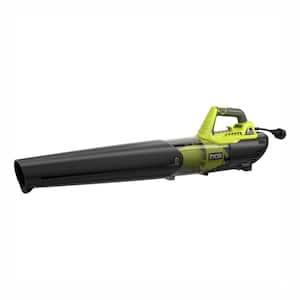
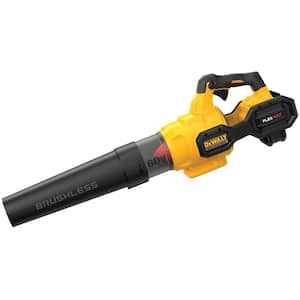
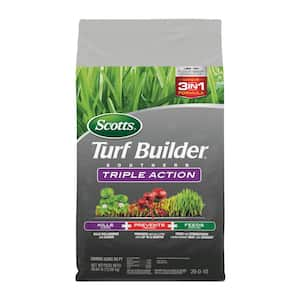
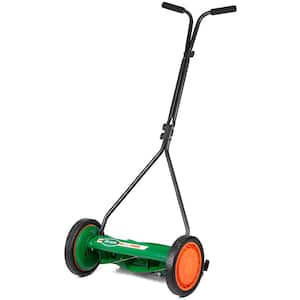
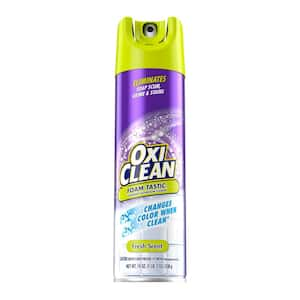
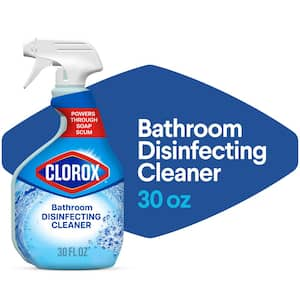
)
)
/17_514245_S_012_Product%20Image%20(square).jpg?im=Resize=(300,300))
;Resize=(300,300))
)
)
)
)
)
/2023_P2_Rain_Barrels_Product%20Image%20(square).jpg?im=Resize=(300,300))
)
;Resize=(300,300))
;Resize=(300,300))
;Resize=(300,300))
/12_SOIL_B_0420_Social%20media%20(square).jpg?im=Resize=(300,300))
;Resize=(300,300))
)
)
;Resize=(300,300))
;Resize=(300,300))
;Resize=(300,300))
;Resize=(300,300))
)
)
;Resize=(300,300))
;Resize=(300,300))
;Resize=(300,300))
;Resize=(300,300))
;Resize=(300,300))
)
/18Patio_Camden_Seagrass_5pcSeating_Planters_302468736_DTL3_L_Social%20media%20(square).jpg?im=Resize=(300,300))
;Resize=(300,300))
;Resize=(300,300))
;Resize=(300,300))
)
;Resize=(300,300))
;Resize=(300,300))
)
;Resize=(300,300))
)
.jpeg?im=Crop,rect=(363.69230769230774,1.2307692307692308,958.7692307692308,958.7692307692308);Resize=(300,300))
;Resize=(300,300))
)
;Resize=(300,300))
;Resize=(300,300))
)
;Resize=(300,300))
)
)
;Resize=(300,300))
;Resize=(300,300))
)
)
;Resize=(300,300))
)
;Resize=(300,300))
;Resize=(300,300))
)
)
;Resize=(300,300))
)
)
/Capello_Spring_Mum_10in_Social%20media%20(square).jpg?im=Resize=(300,300))
;Resize=(300,300))
)
)
;Resize=(300,300))
)
)
;Resize=(300,300))
)
)
;Resize=(300,300))
;Resize=(300,300))











































